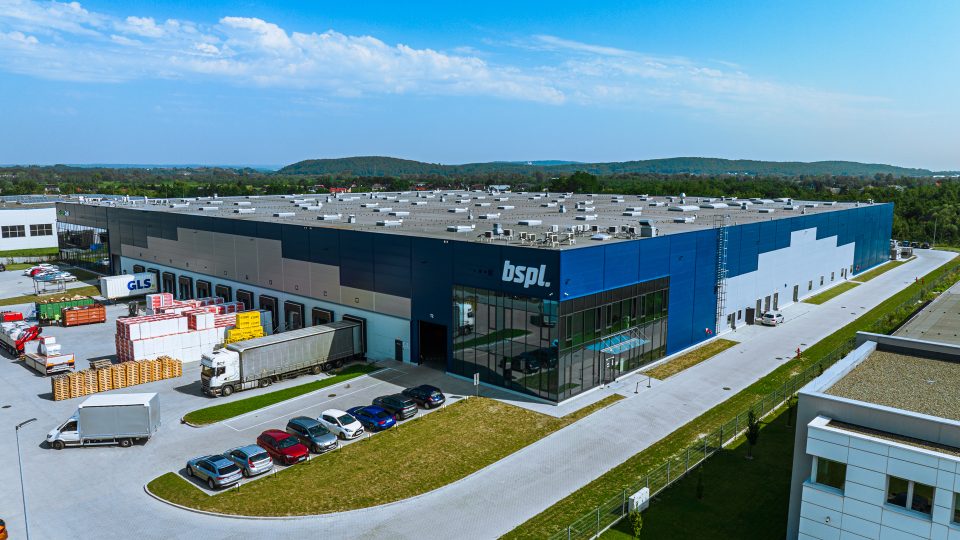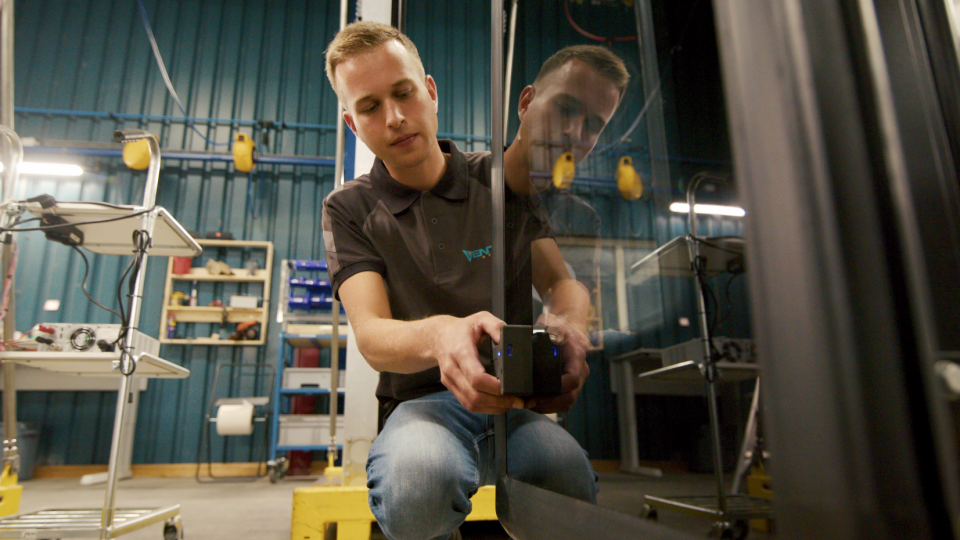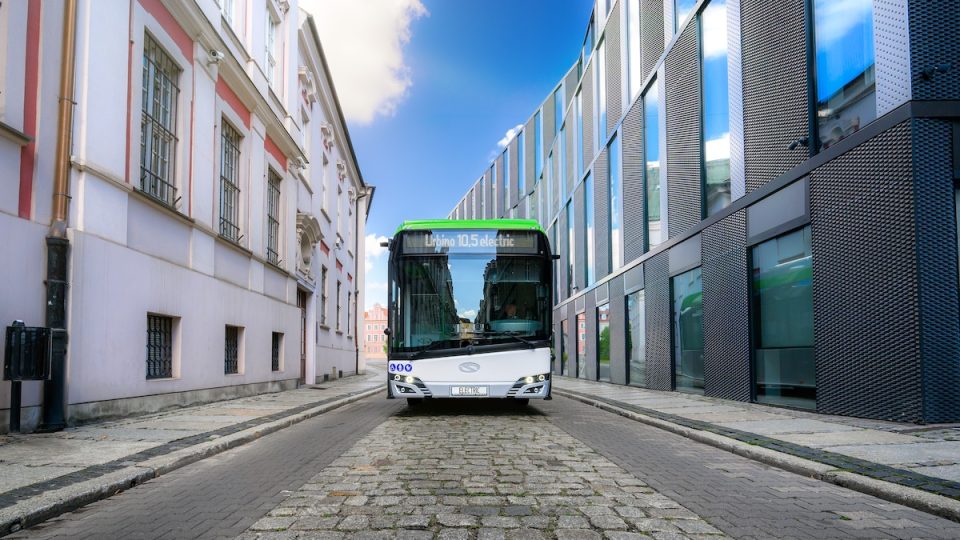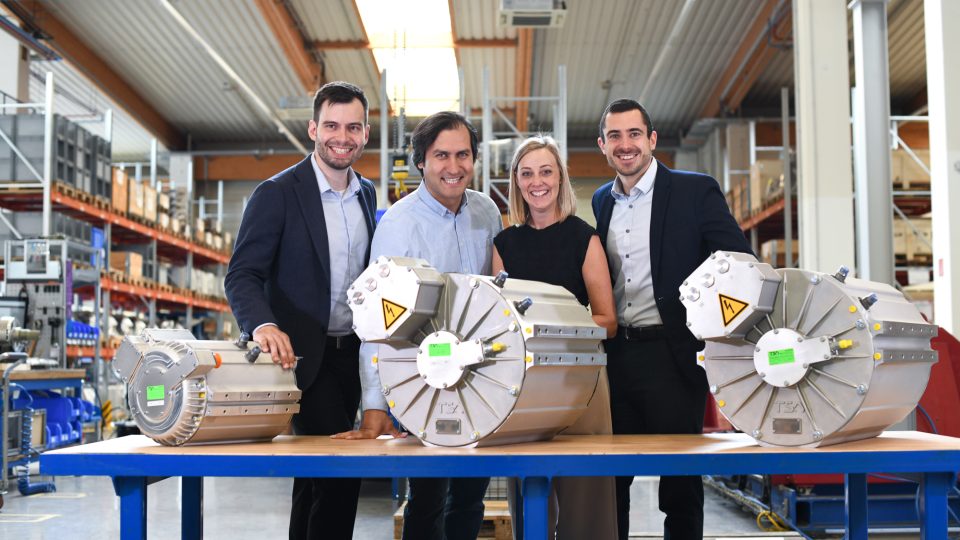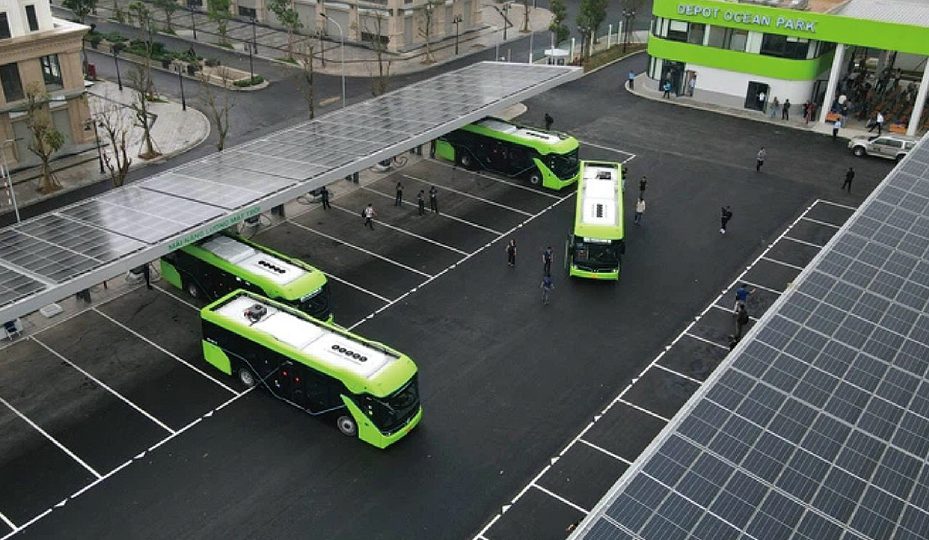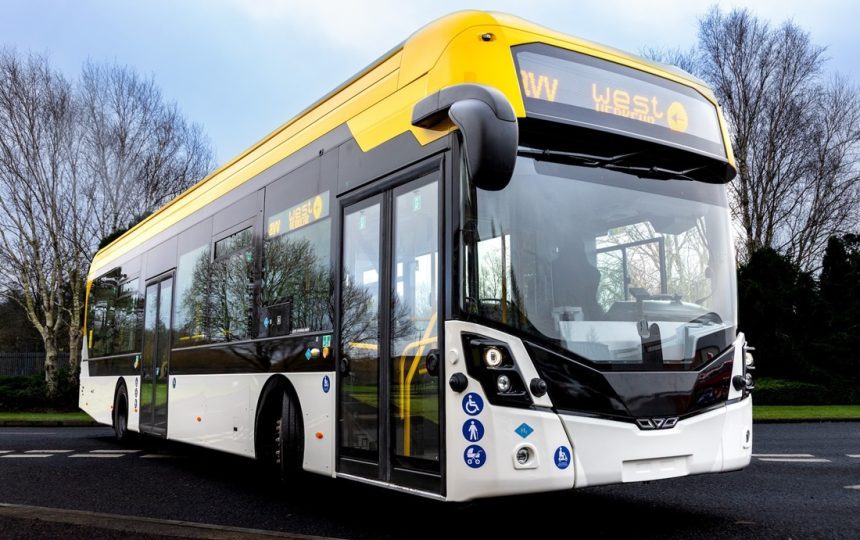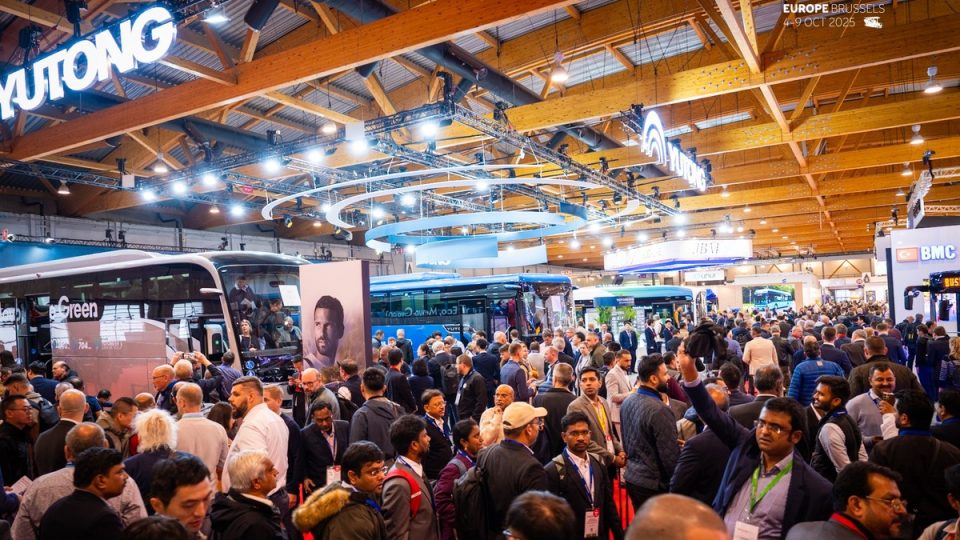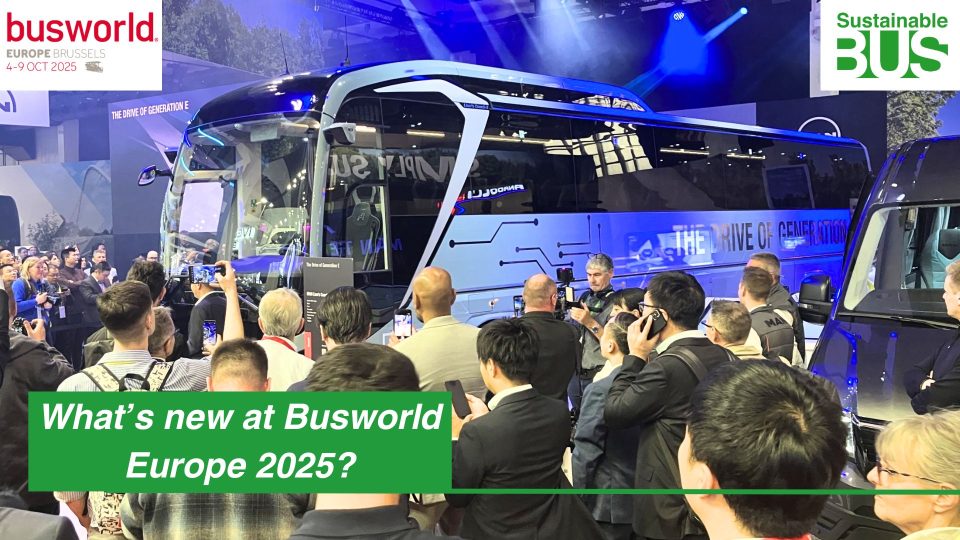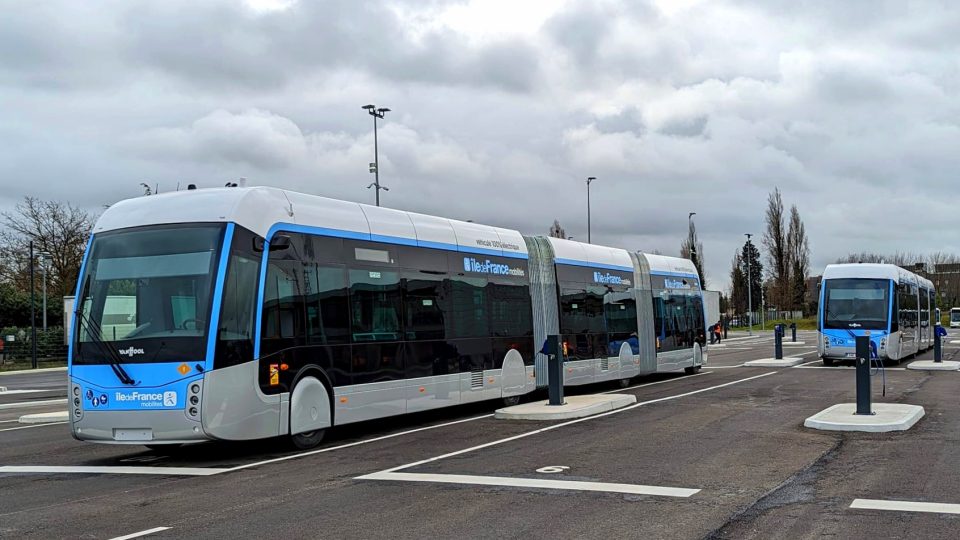Sustainable Bus Tour session “On the way to a fully zero emission city bus market in 2035?”: REPLAY and SLIDES
The second session of the Sustainable Bus Tour 2024 took place on October 2nd in Strasbourg, during the European Mobility Expo show (former Transport Publics). Entitled “On the way to a fully zero emission city bus market in 2035? Technology | business case | market uptake“, the conference delved into the rapidly evolving landscape of […]
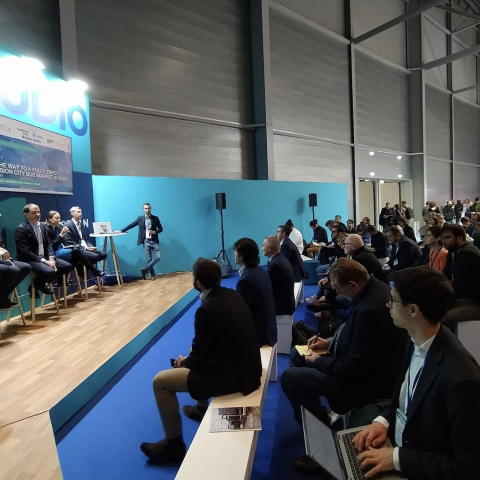
The second session of the Sustainable Bus Tour 2024 took place on October 2nd in Strasbourg, during the European Mobility Expo show (former Transport Publics).
Entitled “On the way to a fully zero emission city bus market in 2035? Technology | business case | market uptake“, the conference delved into the rapidly evolving landscape of zero emission buses in Europe, focusing on the pressing issues and future prospects of the city bus segment.e it to add text to your template.
Opening of the conference has been made by Dario Dubolino, Policy Officer, European Commission’s Directorate General for Mobility and Transport: “When we look at the Green Deal, there is no scenario in which we can achieve our climate objectives without a 90% reduction in all transport emissions, including public transport. This is why zero-emission buses must dominate by 2035. While progress is promising, with one-third of new registrations in 2024 being electric, we must address key challenges, especially in building the necessary recharging infrastructure and sharing knowledge across cities.”
Thomas Avanzata, Spokesperson of the European Union Committee, UITP, shared then the main messages the global organization of public transport is keen to send to EU institutions: “Public transport delivers unmatched benefits—clean air, noise reduction, road safety, economic growth—and yet we continuously have to prove its value. At the same time, we are facing a dangerous economic situation with exploding energy costs, staff shortages, and rising decarbonization investments. Revenues, however, are stagnating. Europe needs to help us find a new balance through increased funding and simpler access to financing, or we risk falling behind on our 2035 zero-emission targets.”
Last contributors at the introductive session, José Serrano, Energy Transition Analyst, RaboResearch, showed some figures: “By 2023, battery electric vehicles became the most popular option in city buses, overtaking diesel by 2,000 registrations. With a 44% growth in 2023 alone, the market is showing strong momentum. We are confident that a 15% annual sales growth will help us reach 90% zero-emission buses by 2030, especially as battery prices fall and energy density improves. This transition is no longer just regulatory-it’s being driven by market forces and advances in battery technology.”
Straight to the roundtable, Katie Black, Energy Transition Director at Transdev, said, leveraging on the group’s worldwide activities: “At Transdev, we’ve learned that while electric buses are simpler to maintain, their operations are more complex, especially when managing fleets in real-time. In the Netherlands, we monitor the state of charge of each bus to ensure they can complete their routes. We’re also adapting to diverse environments-from cold winters in Sweden to desert conditions in Las Vegas. The key is transferring these learnings to other contexts, which will help us support public transport authorities in their transition to zero emissions”.
How the business model is being affected by technological advancements? Bruno Lapeyrie, Group Director-Center of Excellence Energy Transition, Keolis Group, pointed out that “In real life, the total cost of ownership (TCO) for electric vehicles is still about 20-25% higher than diesel. However, there are ways to optimize the business model. Extending the lifespan of electric buses by just five years can save over 15% on TCO. My message to OEMs: please deliver more robust vehicles, especially for European markets, and offer better battery warranties. This will make electric vehicles much more competitive with diesel“.
Iveco Bus, Irizar e-mobility and ZF speaking
Getting to industry representatives, Iveco Bus Sustainable Mobility Manager Jean-Marc Boucheret stated that “We are investing over €100 million in France to support innovation, R&D, and manufacturing, including Euro 7 standards for coaches. However, we’re seeing a significant drop—about 25%—in e-bus tenders over the last 12 months. This is partly due to expiring of funding mechanisms introduced post-COVID, but it’s inconsistent now. The key message to the new parliament and the European Commission, also on behalf of ACEA, is that we need more vehicles in the market, and the focus should be on converting depots to electric, not just counting buses, which are becoming a commodity. We’re asking for an early revision of the CO2 targets by 2025, instead of 2027.”
“We’re proud to celebrate the delivery of our 1,000th electric bus in less than a decade,” says José Antonio Sola, Global Sales Director of Irizar e-mobility. “With a presence in 14 European countries, we face a competitive market. The expectation is for our bus prices to continuously decrease, while larger suppliers make negotiating challenging. Battery manufacturers, primarily based in Asia, not only dictate battery prices but also control lithium production, which poses a risk to our margins. To address these challenges, we’re focused on organic growth by acquiring key suppliers for components like HVAC systems and chargers. Additionally, we’re investing in manufacturing our own batteries to better control our supply chain.”
Last but not least, René Schneider, Segment Leader CV Platform e-Mobility, ZF Group, took the chance of the session to present the ZF Next Generation Electric Drivelines, enphasizing its fully integrated system that optimizes power and performance density while minimizing space requirements. ZF’s modular design allows for scalability across various applications, including light, medium, and heavy-duty trucks, buses, and coaches.
A standout feature is the seamless integration of multi-speed transmissions with powershifting functionality in a dual motor configuration, enhancing overall efficiency. This flexibility is seen as the key to success in the rapidly evolving electric mobility market.

